- Supplements
- Fat Burners
- Pre Workout Booster
- Testo Booster
- Ephedrine HCL
- ECA stack
- Yohimbine
- Prohormones
- SARMs
- Power
- Muscle
- Accessories
- Fat loss
- Diet
- Health
- Endurance
-
50€+ Order = Free Shipping
*AT & DE
Manufacturers
BESTSELLER

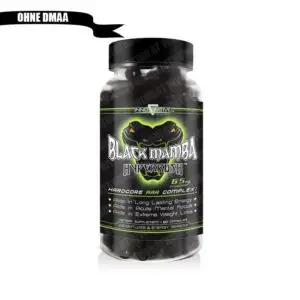





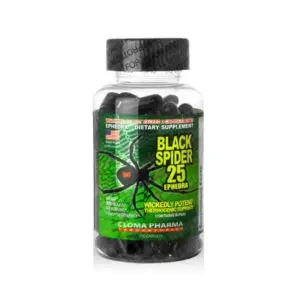
About
FATBURNERKING


Libido is a term that describes a person's sexual desire and sexual energy. It refers to the natural and biological attraction that motivates people to engage in sexual activities and relationships. The definition of libido encompasses the physical, emotional and mental aspects of sexual desire and influences a person's behavior and relationships. It is a fundamental element of human sexuality and plays a crucial role in procreation and the formation of intimate relationships. Libido can vary from person to person and is influenced by various factors such as hormones, psychological states, relationship status and life circumstances. Examining and analyzing libido is an important part of psychological research and can help in the treatment of sexual problems and disorders.
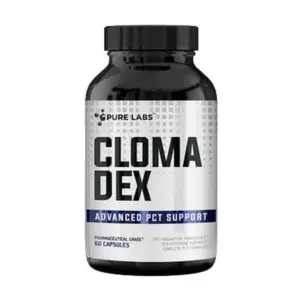

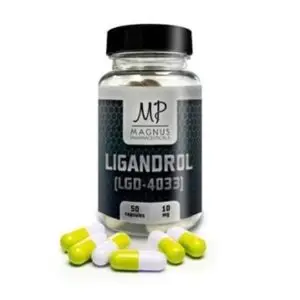
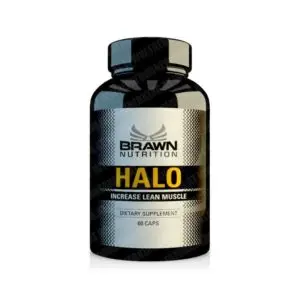
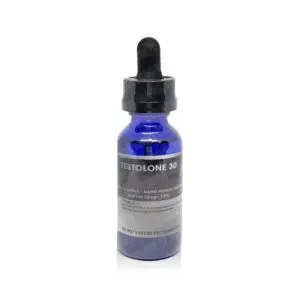
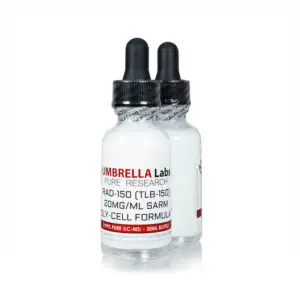

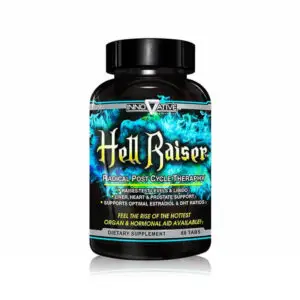
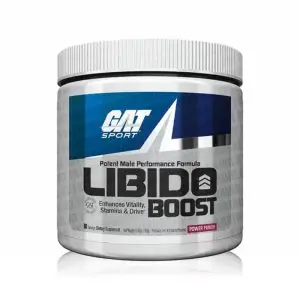
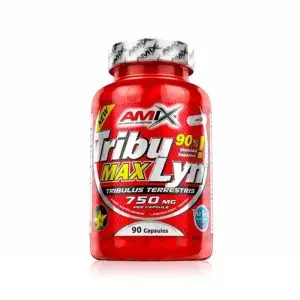
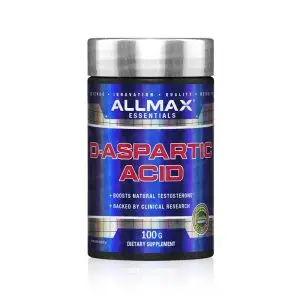



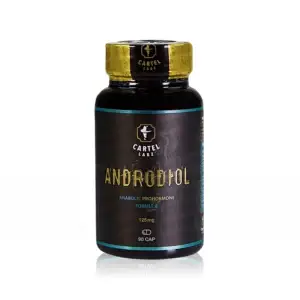
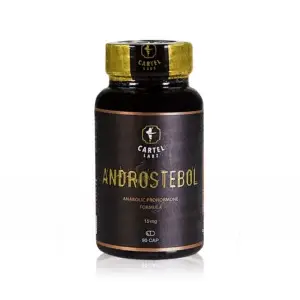


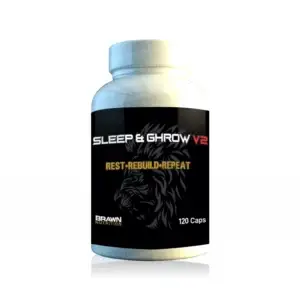
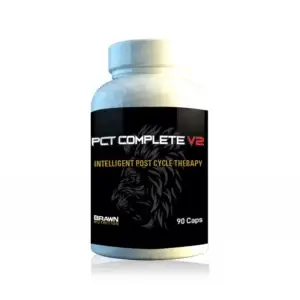
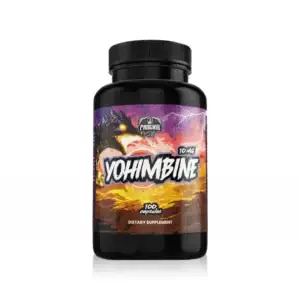
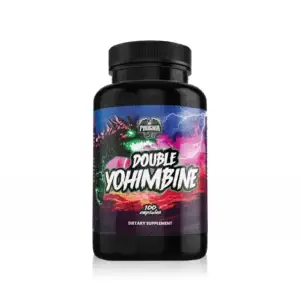

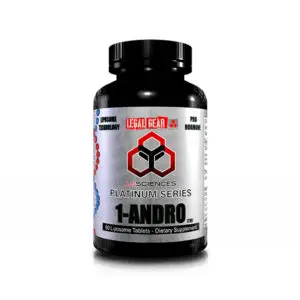
Low libido can have many causes that can be attributed to physical, emotional and psychological factors. Low libido can be the result of hormonal imbalances, chronic stress, relationship problems, depression or the use of certain medications. It is important to understand that low libido is not a rare or uncommon phenomenon, but affects many people. It can have a negative impact on self-esteem, relationships and overall quality of life. Therefore, it is important to identify the causes of low libido and take appropriate action to treat and improve it.
A hormonal imbalance can have various effects on the body. Possible symptoms include irregular menstrual cycles, mood swings, weight gain, hair loss, exhaustion, sleep disorders and fertility problems. In the long term, hormonal imbalance can lead to more serious consequences such as osteoporosis, cardiovascular disease, diabetes and depression.
Hormonal contraceptives can affect the natural balance of hormones, which can lead to a loss of libido. This occurs through the artificial introduction of hormones into the body, which can disrupt natural hormone levels and lead to reduced sexual desire.
The various hormonal contraceptives that can cause hormonal imbalance include the combined pill, the contraceptive patch, the vaginal ring, the hormonal implant and hormonal injections.
A hormonal imbalance can be diagnosed through blood tests and hormone examinations. Treatment usually involves adjusting hormone therapy, making lifestyle and dietary changes, and taking medical supplements to regulate hormone levels. It is important to consult a doctor to get the best treatment for individual needs.
A healthy lifestyle can have a significant impact on libido. Many factors such as diet, exercise and stress can affect our sexual desire. It's important to be aware of how different lifestyle factors can affect our libido and make appropriate adjustments to support healthy sexual function. In this section, we will take a closer look at the lifestyle factors that can affect libido and what measures can be taken to promote sexual health.
Vitamin C, vitamin B6 and folic acid can have a positive effect on hormonal activity as well as on female sexuality and libido.
A poor diet can have a negative impact on sexual desire and hormone levels. An unbalanced diet rich in sugary and fatty foods can affect libido, as these foods can lead to blood sugar fluctuations. A lack of important nutrients such as vitamins, minerals and omega-3 fatty acids can also affect sexual health.
Some key nutrients that are important for sexual health include zinc, which supports testosterone production, and vitamin D, which affects libido and hormone levels.
Poor dietary habits can also affect hormone production and impair sexual interest throughout life. Obesity due to an unhealthy diet can lead to increased oestrogen levels and lower testosterone levels, which can have a negative impact on libido.
Overall, a balanced diet rich in nutrients is important for maintaining healthy hormone levels and a strong sexual desire.
Alcohol consumption and smoking can have negative effects on libido and hormonal regulation. Alcohol can temporarily increase sexual desire, but with regular consumption it can impair sexual function in the long term. Alcohol disrupts hormonal regulation by lowering testosterone levels and increasing oestrogen production, which can have a negative effect on sexual desire.
Smoking can also affect libido and hormonal regulation. Nicotine can constrict blood vessels and reduce blood flow to the reproductive organs, which can lead to sexual dysfunction. Smoking can also affect the production of hormones and impair fertility in both men and women.
The risks and side effects of alcohol consumption and smoking include impaired libido and hormonal regulation as well as an increased risk of erectile dysfunction, reduced fertility and an increased risk of hormone-dependent cancers.
Natural measures to regulate the hormonal system can include regular physical activity, a balanced diet, sufficient sleep and stress reduction. These measures can help to regulate the hormone balance and support the libido.
























Libido dysfunction can be caused by various factors such as stress, hormonal imbalances, fatigue and emotional problems. Natural supplements can help to support the libido in a natural way.
There are several types of supplements that can help increase libido, such as maca root, ginseng, L-arginine, tribulus terrestris and vitamin D. These supplements can help balance hormone levels, improve blood flow and increase energy, which can have a positive effect on libido.
The most common natural supplements for increasing libido are maca root, ginseng and L-arginine. Maca root is said to improve sexual function and fertility in both men and women. Ginseng can boost testosterone production and increase libido. L-arginine can help to improve blood circulation and increase sexual arousal.
When using natural supplements to increase libido, possible side effects such as stomach discomfort, insomnia and headaches should be taken into account. It is important not to exceed the recommended dosage and to consult a doctor if necessary to ensure safe use.
© copyright 2018-2025 Fatburnerking.at
| Cookie | Duration | Description |
|---|---|---|
| cookielawinfo-checkbox-advertisement | 1 year | This cookie is set by the GDPR Cookie Consent Plugin and is used to record the user's consent for the cookies in the "Advertising" category. |
| cookielawinfo-checkbox-analytics | 11 months | This cookie is set by GDPR Cookie. The cookie is used to store user consent for cookies in the "Analytics" category. |
| cookielawinfo-checkbox-functional | 11 months | The cookie is set based on the consent of the GDPR cookies to record the user's consent for cookies in the "Functional" category. |
| cookielawinfo-checkbox-necessary | 11 months | This cookie is set by GDPR Cookie. Cookies are used to store the user's consent to the storage of cookies in the "Necessary" category. |
| cookielawinfo-checkbox-others | 11 months | This cookie is set by GDPR Cookie. The cookie is used to store the user's consent for cookies in the "Other" category. |
| cookielawinfo-checkbox-performance | 11 months | This cookie is set by GDPR Cookie. The cookie is used to store user consent for cookies in the "Performance" category. |
| CookieLawInfoConsent | 1 year | Records the default button status of the corresponding category and the status of CCPA. It only works in coordination with the primary cookie. |
| elementor | never | This cookie is used by the website's WordPress theme. It allows the website owner to implement or change the content of the website in real time. |
| viewed_cookie_policy | 11 months | The cookie is set by the GDPR cookie and is used to store whether the user has consented to the use of cookies or not. It does not store any personal data. |
| Cookie | Duration | Description |
|---|---|---|
| ssupp.vid | 6 months | Cookie set by Smartsupp to record the visitor ID. |
| ssupp.visits | 6 months | Cookie set by Smartsupp to record the number of previous visits, necessary to track automatic messages. |
| Cookie | Duration | Description |
|---|---|---|
| _ga | 2 years | The _ga cookie installed by Google Analytics calculates visitor, session and campaign data and also tracks website usage for the website analytics report. The cookie stores information anonymously and assigns a randomly generated number to identify unique visitors. |
| _gat_gtag_UA_179465762_1 | 1 minute | Set by Google to distinguish users. |
| _gid | 1 day | The _gid cookie installed by Google Analytics stores information about how visitors use a website and at the same time creates an analytics report about the website's performance. Some of the data collected includes the number of visitors, their source and the pages they visit anonymously. |
| tk_ai | 5 years | JetPack sets this cookie to store a randomly generated anonymous ID that is only used in the administration area and for general analytics tracking. |
| tk_lr | 1 year | The tk_lr is a referral cookie set by the JetPack plug-in on websites using WooCommerce that analyses referral behaviour for Jetpack. |
| tk_or | 5 years | The tk_or is a referral cookie set by the JetPack plug-in on websites using WooCommerce that analyses referral behaviour for Jetpack. |
| tk_qs | 30 minutes | JetPack sets this cookie to store a randomly generated anonymous ID that is only used in the administration area and for general analytics tracking. |
| tk_r3d | 3 days | JetPack installs this cookie to collect internal metrics for user activity to improve the user experience. |
| tk_tc | Session | JetPack sets this cookie to record details of how users use the website. |
| Cookie | Duration | Description |
|---|---|---|
| _fbp | 3 months | This cookie is set by Facebook to display ads after visiting the website, either on Facebook or on a digital platform powered by Facebook Ads. |
| fr | 3 months | Facebook sets this cookie to display relevant ads to users by tracking user behaviour on the web, on websites with Facebook Pixel or Facebook Social Plug-in. |
| Cookie | Duration | Description |
|---|---|---|
| cookies.js | Session | No description available. |
| weglot_wp_rocket_cache | Session | No description |